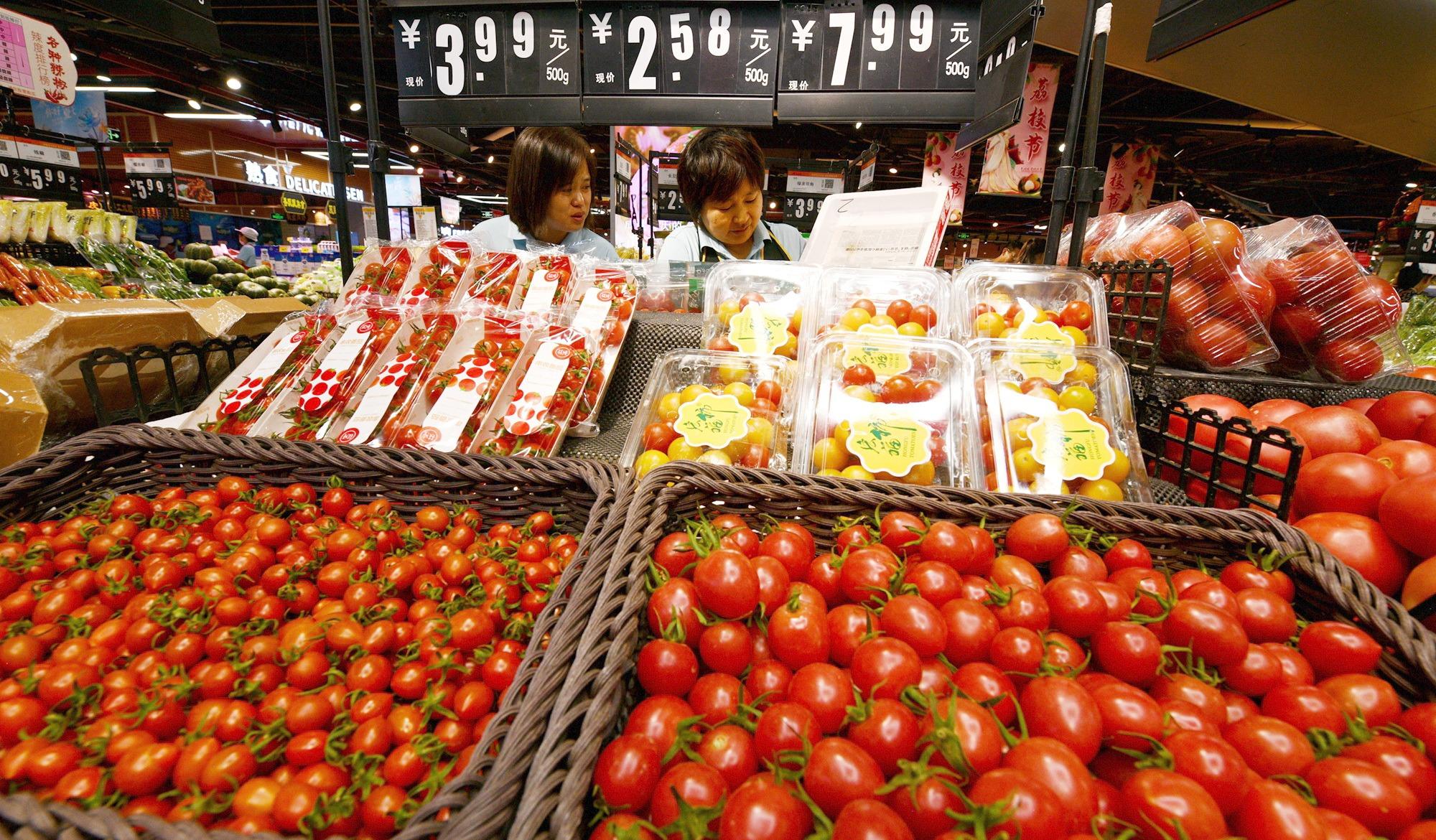Data underline need to boost incomes, spur purchases of big-ticket items
 Shoppers buy groceries at a supermarket in Shijiazhuang, Hebei province. (LI MINGFA / FOR CHINA DAILY)
Shoppers buy groceries at a supermarket in Shijiazhuang, Hebei province. (LI MINGFA / FOR CHINA DAILY)
Given the slower-than-anticipated consumption growth in June, well-targeted policy steps are needed to keep the tasks of boosting domestic demand and shoring up consumption high on China's work agenda, as part of the country's efforts to a sustain steady economic upturn, experts said on Monday.
To be sure, consumption picked up in the past few months, serving as the main growth engine. But, it has not fully established a solid foundation yet — so, more forceful measures are needed to increase household incomes and spur big-ticket items in a mutually reinforcing way, they said.
Data released by the National Bureau of Statistics on Monday showed the country's retail sales of consumer goods totaled around 22.76 trillion yuan ($3.17 trillion) in the first half of the year, up 8.2 percent year-on-year. In June alone, the figure edged up 3.1 percent compared with the same period last year, and amounted to 3.99 trillion yuan.
Lackluster consumer demand has partly resulted in the Consumer Price Index, the main gauge of inflation, coming in flat in June compared with the same period last year, NBS data showed earlier. The People's Bank of China, the country's central bank, said on Friday that a further dip in the CPI might be expected this month, but inflation will likely pick up gradually from August to reach a level close to 1 percent by the end of the year.
Wen Bin, chief economist at China Minsheng Bank, said China has fully resumed normal order in its social and economic activities from the beginning of this year, and also announced stronger policies to stimulate consumption.
Besides, the May Day holiday and Dragon Boat Festival bolstered consumer spending in various sectors, including catering and tourism.
Consumption maintained an overall robust momentum, spurring recovery, and has played a bigger role in driving economic growth, Wen said, adding it, however, eased in June with retail sales logging the slowest growth since December when the country lifted most COVID-19 pandemic restrictions.
The slowdown in consumption growth is partly attributable to the decline in car sales and the ailing property market in June, which should receive high priority in the form of more government support, Wen said.
Data from the China Passenger Car Association showed that in the June 1-25 period, car sales fell 1 percent from the same period last year. Meanwhile, new home prices stayed unchanged in June from a year earlier, retreating from a 0.1 percent increase in May, NBS data showed.
Xu Hongcai, deputy director of the economic policy committee at the China Association of Policy Science, said more support should be extended to consumer spending on big-ticket items like new energy vehicles and home appliances, especially in the vast rural areas that have a huge potential to stir consumption.
According to a CPCA estimate, the penetration rate of NEVs in counties and townships came in at 17 percent compared with some 30 percent in cities even with purchase restrictions in place.
High-end consumption in big cities should not be the country's sole focus. Rural consumption capacity is modest, but it can grow and bring about consumption upgrade, Xu said.
The Ministry of Commerce recently rolled out a slew of policies to accelerate the recovery and expansion of consumption in the home appliances segment. These included subsidies for trading in old goods and purchasing green smart home appliances, and promotional campaigns to boost purchases of home appliances in rural areas.
Going forward, every possible means should be explored to increase household incomes, so as to boost their capacity and willingness to spend and thus better underpin the sustainable growth of consumption in the long run, Xu said.
China's per capita disposable income stood at 19,672 yuan in the first half, up 6.5 percent year-on-year in nominal terms, NBS data showed. After stripping out price factors, per capita disposable income rose 5.8 percent from the previous year.


